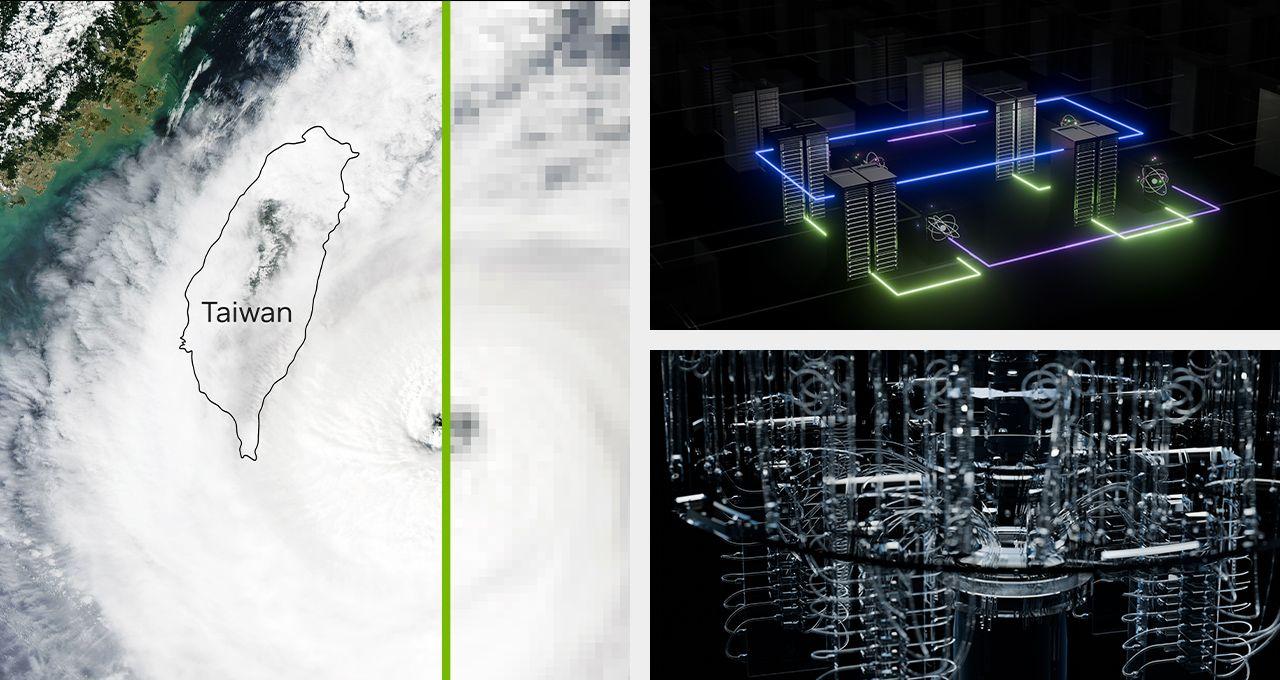Japan's FugakuNEXT: A Leap Towards Zetta-Scale AI-HPC Supercomputing
3 Sources
3 Sources
[1]
Nvidia GPUs and Fujitsu Arm CPUs will power Japan's next $750M zetta-scale supercomputer -- FugakuNEXT aims to revolutionize AI-driven science and global research
Japan is preparing to reclaim its position at the forefront of high-performance computing with FugakuNEXT, a hybrid AI-HPC supercomputer designed to surpass exascale and venture into uncharted zetta-scale territory. Announced at a ceremony in Tokyo on August 22, the project marks a major collaboration between RIKEN, Fujitsu, and, for the first time, Nvidia, bringing together Japan's sovereign infrastructure and U.S. GPU technology in a system built for the next decade of scientific and industrial challenges. Fugaku, installed in 2020, held the world's top spot for two years and played a crucial role during the COVID-19 pandemic, where its simulations helped guide research and response efforts. Today, it still ranks seventh globally, but Japan is already looking ahead. FugakuNEXT is expected to come online around 2030 at RIKEN's Kobe campus on Port Island, with a development budget exceeding 110 billion Yen ($740 million USD). This marks the latest in a lineage of Japanese flagship supercomputers -- from the Earth Simulator in 2002 to the K computer in 2011 and Fugaku itself -- each of which once held the crown for computational speed. Unlike its predecessors, FugakuNEXT will integrate GPUs as a central design element. Fujitsu will develop the new MONAKA-X CPUs, while Nvidia will supply GPUs and co-design the interconnect fabric through NVLink Fusion, a high-bandwidth bridge between CPU and GPU. The result will be a system purpose-built for both traditional simulation workloads and next-generation AI applications. RIKEN has emphasized that this is Japan's first flagship system to adopt GPUs, reflecting the growing global trend of unifying HPC and AI computing. RIKEN has set quite ambitious goals for FugakuNEXT, projecting a fivefold increase in hardware performance over the original Fugaku, combined with a twentyfold software and algorithmic improvements through optimizations such as mixed-precision computing and physics-informed neural networks. Together, these advances are expected to deliver a massive hundredfold increase in real-world application performance compared to today's machines. Early targets already place the system's peak at around 600 exaFLOPS in FP8 sparse precision, with the potential to become the world's first zetta-scale supercomputer. Crucially, RIKEN has also confirmed that this leap in performance will be achieved within the same forty-megawatt power envelope as Fugaku, underscoring energy efficiency as a core principle of the project. The institution also frames FugakuNEXT not just as a technical upgrade but as an integrated AI-HPC platform and a model for "AI for Science." By automating various aspects of the research process -- from hypothesis generation to experiment simulation and validation -- the machine aims to accelerate discovery across diverse fields, including climate modeling, drug development, disaster resilience, and advanced manufacturing. More importantly, Nvidia will serve a crucial role as its full software stack will be integrated into the supercomputer, from CUDA-X libraries for quantum simulation and data science to TensorRT for inference and NeMo for large language model training, reflecting the growing role of AI as a scientific instrument. For Japan, FugakuNEXT is both a scientific tool and a strategic investment. The government views the project as essential to strengthening domestic semiconductor technologies while positioning Japan as a global leader in AI and HPC innovation. At the launch ceremony, Satoshi Matsuoka, director of RIKEN's Center for Computational Science, called the partnership with Nvidia "a major strategic move" that would not only enhance Japan's capabilities but also promote the global adoption of Japanese CPU technologies. That being said, the Green Team doesn't come cheap as FugakuNEXT is projected to cost more than three-quarters of a billion dollars, but its ambitions are even larger: pioneer the integration of HPC and AI at unprecedented scale; serve as a national platform for research and industry, and to establish Japan as a central force in the zetta-scale era. If successful, it will not just succeed Fugaku -- it could redefine the very role of national supercomputers in shaping both science and society.
[2]
Japan's Fugaku supercomputer follow-up adds Nvidia GPUs
Japanese research institution RIKEN has decided it needs GPUs for its next generation "FugakuNEXT" supercomputer and has signed Nvidia to supply them and design the systems needed to get them working. RIKEN is home to Fugaku, a machine that from mid-2020 spent two years atop the TOP500 list of Earth's mightiest supercomputers. The machine is still in seventh place, but RIKEN wants an upgrade and has already awarded a contract to Fujitsu to build its successor and the custom Arm-based CPU called "MONAKA-X" that will power it. On Friday, the institution announced a change to its plan: Adding Nvidia GPUs, and contracting the AI hardware giant to design systems that incorporate its accelerators into the supercomputer. RIKEN said Nvidia's design "will explore the adoption of cutting-edge connection technologies between the CPU and GPU, while also considering the incorporation of advanced memory technologies." While Nvidia and RIKEN are both chuffed about the decision to use GPUs, neither has said which model accelerator FugakuNEXT will use, how many will be present, and whether adding GPUs means the supercomputer's design will include Nvidia networks. But whatever ends up inside FugakuNEXT, it will be very fast. RIKEN's announcement of its Nvidia collaboration states it aims for the machine to exceed 600 exaFLOPS (EFLOPS) in FP8 precision (sparse), and expects the machine "to become the world's first 'zetta-scale' system." The research outfit added that involving Nvidia means it's set a target of "more than a fivefold improvement in hardware performance over Fugaku," and it will pursue "a hundredfold increase in application performance" compared to its current supercomputer. RIKEN's announcement states that FugakuNEXT "will deliver exceptional performance in AI training and GPU-optimized HPC applications." The reference to "training" could indicate large language models, as Japanese researchers have already used the current Fugaku machine to train the 13-billion parameter Fugaku-LLM. Fujitsu is yet to deliver the MONAKA-X, and RIKEN wants FugakuNEXT to come online "around 2030". Let's see if adding GPUs to the machine helps or hinders that goal. ®
[3]
RIKEN, Japan's Leading Science Institute, Taps Fujitsu and NVIDIA for Next Flagship Supercomputer
Early collaboration will shape Japan's FugakuNEXT, a flagship supercomputing platform to tackle pressing scientific and societal challenges. Japan is once again building a landmark high-performance computing system -- not simply by chasing speed, but by rethinking how technology can best serve the nation's most urgent scientific needs. At the FugakuNEXT International Initiative Launch Ceremony held in Tokyo on Aug. 22, leaders from RIKEN, Japan's top research institute, announced the start of an international collaboration with Fujitsu and NVIDIA to co-design FugakuNEXT, the successor to the world-renowned supercomputer, Fugaku. Awarded early in the process, the contract enables the partners to work side by side in shaping the system's architecture to address Japan's most critical research priorities -- from earth systems modeling and disaster resilience to drug discovery and advanced manufacturing. More than an upgrade, the effort will highlight Japan's embrace of modern AI and showcase Japanese innovations that can be harnessed by researchers and enterprises across the globe. The ceremony featured remarks from the initiative's leaders, RIKEN President Makoto Gonokami and Satoshi Matsuoka, director of the RIKEN Center for Computational Science and one of Japan's most respected high-performance computing architects. Fujitsu Chief Technology Officer Vivek Mahajan attended, emphasizing the company's role in advancing Japan's computing capabilities. Ian Buck, vice president of hyperscale and high-performance computing at NVIDIA, attended in person as well to discuss the collaborative design approach and how the resulting platform will serve as a foundation for innovation well into the next decade. Momentum has been building. When NVIDIA founder and CEO Jensen Huang touched down in Tokyo last year, he called on Japan to seize the moment -- to put NVIDIA's latest technologies to work building its own AI, on its own soil, with its own infrastructure. FugakuNEXT answers that call, drawing on NVIDIA's whole software stack -- from NVIDIA CUDA-X libraries such as NVIDIA cuQuantum for quantum simulation, RAPIDS for data science, NVIDIA TensorRT for high-performance inference and NVIDIA NeMo for large language model development, to other domain-specific software development kits tailored for science and industry. Innovations pioneered on FugakuNEXT could become blueprints for the world. What's Inside FugakuNEXT will be a hybrid AI-HPC system, combining simulation and AI workloads. It will feature FUJITSU-MONAKA-X CPUs, which can be paired with NVIDIA technologies using NVLink Fusion, new silicon enabling high-bandwidth connections between Fujitsu's CPUs and NVIDIA's architecture. The system will be built for speed, scale and efficiency. What It Will Do FugakuNEXT will support a wide range of applications -- such as automating hypothesis generation, code creation and experiment simulation. * Scientific research: Accelerating simulations with surrogate models and physics-informed neural networks. * Manufacturing: Using AI to learn from simulations to generate efficient and aesthetically pleasing designs faster than ever before. * Earth systems modeling: aiding disaster preparedness and prediction for earthquakes and severe weather, and more. RIKEN, Fujitsu and NVIDIA will collaborate on software developments, including tools for mixed-precision computing, continuous benchmarking, and performance optimization. FugakuNEXT isn't just a technical upgrade -- it's a strategic investment in Japan's future. Backed by Japan's MEXT (Ministry of Education, Culture, Sports, Science and Technology), it will serve universities, government agencies, and industry partners nationwide. It marks the start of a new era in Japanese supercomputing -- one built on sovereign infrastructure, global collaboration, and a commitment to scientific leadership.
Share
Share
Copy Link
Japan announces FugakuNEXT, a groundbreaking AI-HPC hybrid supercomputer, combining Fujitsu's ARM CPUs and Nvidia's GPUs. Set to launch around 2030, it aims to revolutionize scientific research and establish Japan as a leader in zetta-scale computing.
Japan's Ambitious Leap into Zetta-Scale Computing
Japan is set to reclaim its position at the forefront of high-performance computing with the announcement of FugakuNEXT, a cutting-edge hybrid AI-HPC supercomputer. Unveiled at a ceremony in Tokyo on August 22, this ambitious project marks a significant collaboration between RIKEN, Fujitsu, and Nvidia, aiming to surpass exascale and venture into zetta-scale territory
1
2
3
.A Powerful Fusion of Technologies
FugakuNEXT will integrate Fujitsu's custom-designed MONAKA-X ARM-based CPUs with Nvidia's state-of-the-art GPUs. This marks a departure from its predecessors, as it's Japan's first flagship system to adopt GPUs, reflecting the growing global trend of unifying HPC and AI computing
1
. The system will utilize NVLink Fusion, a high-bandwidth bridge between CPU and GPU, to create a seamless integration of these technologies1
3
.
Source: NVIDIA
Unprecedented Performance Goals
RIKEN has set ambitious performance targets for FugakuNEXT:
- A fivefold increase in hardware performance over the original Fugaku
- A twentyfold improvement in software and algorithmic performance
- A projected peak performance of around 600 exaFLOPS in FP8 sparse precision
These advancements are expected to deliver a massive hundredfold increase in real-world application performance compared to today's machines, potentially making FugakuNEXT the world's first zetta-scale supercomputer
1
2
.Energy Efficiency and AI Integration
Despite its significant performance leap, FugakuNEXT is designed to operate within the same forty-megawatt power envelope as its predecessor, Fugaku, underscoring a strong commitment to energy efficiency
1
. The system will also fully integrate Nvidia's software stack, including CUDA-X libraries, TensorRT for inference, and NeMo for large language model training, reflecting the growing role of AI as a scientific instrument1
3
.Applications and Impact
FugakuNEXT is positioned as an integrated AI-HPC platform, aiming to accelerate discovery across diverse fields:
- Climate modeling and disaster resilience
- Drug development and healthcare research
- Advanced manufacturing and industrial design
- Earth systems modeling for earthquake and severe weather prediction
1
3
The system is designed to automate various aspects of the research process, from hypothesis generation to experiment simulation and validation, potentially revolutionizing the scientific method
1
.Related Stories
Strategic Importance for Japan
For Japan, FugakuNEXT represents more than just a technological achievement. It's a strategic investment aimed at:
- Strengthening domestic semiconductor technologies
- Positioning Japan as a global leader in AI and HPC innovation
- Serving as a national platform for research and industry
1
2

Source: Tom's Hardware
The project, backed by Japan's Ministry of Education, Culture, Sports, Science and Technology (MEXT), is projected to cost over 110 billion Yen ($740 million USD)
1
3
.Timeline and Future Prospects
FugakuNEXT is expected to come online around 2030 at RIKEN's Kobe campus on Port Island
1
. While the exact specifications of the Nvidia GPUs to be used are yet to be announced, the early collaboration between RIKEN, Fujitsu, and Nvidia suggests a carefully planned development process2
3
.As FugakuNEXT takes shape, it promises not just to succeed Fugaku but to redefine the role of national supercomputers in shaping both science and society. Its success could establish Japan as a central force in the zetta-scale era and provide a blueprint for future high-performance computing systems worldwide.
References
Summarized by
Navi
[1]
[2]
Related Stories
NVIDIA Predicts AI-Accelerated Future for Scientific Computing as GPU Supercomputers Dominate Top500
18 Nov 2025•Science and Research

Taiwan's New AI Supercomputer to Boost Research in Quantum Computing and Climate Science
19 May 2025•Technology

US National Labs Launch Massive AI Supercomputing Initiative to Maintain Global Technological Leadership
26 Nov 2025•Technology

Recent Highlights
1
Pentagon threatens to cut Anthropic's $200M contract over AI safety restrictions in military ops
Policy and Regulation

2
ByteDance's Seedance 2.0 AI video generator triggers copyright infringement battle with Hollywood
Policy and Regulation

3
OpenAI closes in on $100 billion funding round with $850 billion valuation as spending plans shift
Business and Economy





